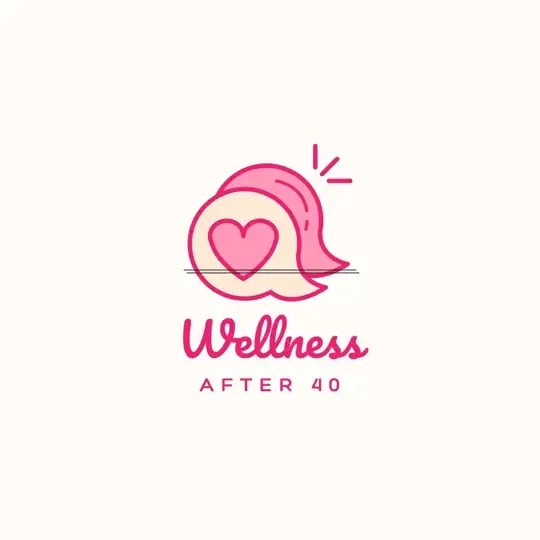You already know: YOU ARE YOUR STRONGEST ADVOCATE.
And quality information is KEY to effective advocacy - especially when it comes to wellness.
Whether you're an avid reader (like Jenn) or you're always listening to something (a la Christina), we've got you covered. We hope these resources will help you take your next step towards holistic health with confidence and hope.
The podcasts, videos, and downloads below are offered as *free* educational tools. You can visit the Favorite Things page to find products we recommend, or the Services page for our paid programs.
You're also invited to review our research published in the Journal of Women's & Pelvic Health Physical Therapy and the Biomedical Journal of Scientific and Technical Research (Article 1) (Article 2).


Many women come to us wondering just how serious their issues are, having been told by our culture (or heck, their physician) that their problems are "not that bad."
We believe that if something is affecting how you're showing up for your life, it's worth looking at.
Our free quiz can help you to better understand the extent of your pelvic floor issues and may help connect the dots between seemingly unrelated pain points.
Take the Quiz →We've been honored to guest on more than 70 amazing podcasts over the years!
Here are our most recent features, and we've sorted oldies-but-goodies by issue below.
You can find our full library here.

Holistic Moms
"Stressed Out & Leaking? How Stress Wrecks Your Pelvic Floor (and What to Do About It)"
Are you a podcast host looking for a qualified + experienced guest?
Please visit our Press/Speaking page→
Pee Leaks, Urgency, and Frequency
Leaking pee is not normal – common, but not normal. If you're crossing your legs to cough, afraid to sneeze, or wearing a liner/pad daily, your body is trying to tell you something. Similarly, that "gotta go NOW" feeling and peeing often are signs that shouldn't be ignored.
Take a Self Assessment →Pelvic floor issues go well beyond pee leaks!
Jump to:
Please stay patient: the number of videos and links on this page can make it a little slow to load. (It's worth it!)
Find a bad link? Ugh - that's the worst! Please let us know via our Contact page so we can fix it.

Sign up for Tinkler Talk
Get pelvic floor education and holistic health tips delivered to your inbox every Wednesday.
Why Kegels are Problematic (Tight/Hypertonic Pelvic Floor)
For decades, kegels have been the primary tool offered to women struggling with pelvic floor dysfunction despite little research (or even anecdotal evidence) that they WORK. Spoiler alert: they don't.
Your pelvic floor is made of muscle, and muscle CANNOT be strengthened by a pattern of tightening/relaxing. Kegels actually contribute to a hypertonic (tight) pelvic floor – and a tight muscle is a WEAK muscle. Your pelvic floor muscles need to be 1) reactivated and 2) strengthened. Kegels (and internal devices) are not the solution.
Pain with Sex
There are plenty of jokes out there about how having kids ruins a couple’s sex life, but it’s no laughing matter for modern marriages. If you're experiencing pain with intimacy, there are steps you can take.
Improving Intimacy Guide (PDF download)
- Stretches and other practical strategies to try if sex has been uncomfortable or even painful
- Conversation starters to help your partner understand what's happening
Prolapse
“Something is falling out of me.” Maybe that sounds dramatic – but that's what prolapse feels like for some women. Vaginal prolapse, the bulging or falling out of an organ through the vagina, impacts about one-third of women. Unfortunately, this is often when the traditional medical system fails: we hear from women daily who have been dismissed, patronized, or brushed off. If that's been your experience, we are truly sorry.
We want you to know:
- your experience is REAL,
- you MATTER,
- your quality of life MATTERS, and
- there IS hope.
Try this Decompression Position (teaching video + PDF pulled from our Signature Program)
This simple resting posture:
- takes pressure off your pelvic floor
- calms your body's fight/flight/freeze response (often stuck "on" when prolapse is present)
- helps with back/hip pain
- feels really dang good! Seriously - our Signature Program members RAVE about this one!

Fourth Trimester Podcast
"Tips For Avoiding And Fixing Pelvic Organ Prolapse: Taking The Panic Out Of Prolapse"

Her Holistic Healing
"Pelvic Floor Dysfunction, Pelvic Prolapse, and Diastasis Recti: Are Your Symptoms Normal?"
There's a LOT to learn about prolapse – which is why we created the Prolapse 101 Masterclass.
This one hour, information-packed class is designed to help you understand what's happening in your body so you can make informed decisions:
- Familiarize yourself with prolapse terminology.
- Understand what's happening in your body.
- Become aware of the many treatment options out there.
Diastasis Recti (DR)
Diastasis recti (DR) is the separation of the ab muscles – a normal part of pregnancy. After birth, the muscles should come back together - though ~40% of women still have a DR 6 months later. DRs contribute to pelvic floor dysfunction, a mom "pooch," and other issues.
Suspect a DR? Learn how to check yourself and use a simple closure technique (videos + PDF)
Diastasis recti (DR) is the separation of the ab muscles – a normal part of pregnancy. After birth, the muscles should come back together - though ~40% of women still have a DR 6 months later. DRs contribute to pelvic floor dysfunction, a mom "pooch," and other issues.
This free resource is very popular – for good reason! It shows you exactly how to do a self assessment as well as a simple daily exercise to close your abs.
Check your tummy →Managing Mindset in the Midst of Pelvic Floor Issues
The holistic approach to health takes into consideration mind, body, and soul. While any health issue impacts the mind (even a cold can make us crabby!), pelvic floor problems can be especially aggravating to your mental health. True healing happens when we go beyond managing symptoms and take care of our emotional bodies as well.
Try this Decompression Position (teaching video + PDF pulled from our Signature Program)
This simple resting posture:
- calms your body's fight/flight/freeze response (give your nervous system a break!)
- helps with back/hip pain
- takes pressure off your pelvic floor
- feels really dang good! Seriously - our Signature Program members RAVE about this one!
Mindset Books We Love

The Biology of Belief
A beautiful combination of science and spirit. For those of us with questions that more than the "conventional" world of science (or cause and effect) can explain.

The Gifts of Imperfection
This science & heart-based guide will help you to let go of what people think, let go of perfectionism, let go of numbing & powerlessness, let go of scarcity, & do it all with self-compassion.

The Anxiety and Phobia Workbook
Learn the most effective skills for assessing and treating anxiety - an arsenal of tools for quieting worry, ending negative self-talk, and taking charge of your anxious thoughts, so you can live a happier life.
As Amazon Associates, we may earn a small commission from qualifying purchases made through links on this page. You can view more of our favorite books and products here.
Recurrent/Severe UTIs
What do UTIs have to do with pelvic floor problems? A lot. Most women have had a UTI - and 25% experience recurrent ones - often without getting to the root cause. We notice we’re peeing more (and it burns a little), we get an antibiotic, we move on.
Just a normal part of being a woman, right?
Not exactly. UTI stands for urinary tract infection - and infections don’t just happen. By treating the symptoms and ignoring the cause, women might be missing a bigger issue that, left untreated, can become increasingly hard (and more expensive) to fix as time goes on.
(UTI part of the video starts at 4:00)
Preventing UTIs

Liquid Urinary Tract Health Supplement
Helps cleanse, flush, & protect the bladder & urinary tract. Can help to prevent and relieve UTI's.
As Amazon Associates, we may earn a small commission from qualifying purchases made through links on this page.
Back/Hip Pain
Similar to UTIs, back and hip pain hasn't always been associated with pelvic floor issues. As more women reject "bandaid" solutions and push to find the root of the problem, however, the important connection between the two is becoming more known. Back and/or hip pain, bunions, and posture issues can stem from a weak pelvic floor (sometimes referred to as "hypertonic" or "tight").
Try this Decompression Position (teaching video + PDF pulled from our Signature Program)
This simple resting posture:
- helps with back/hip pain
- takes pressure off your pelvic floor
- calms your body's fight/flight/freeze response (give your nervous system a break!)
- feels really dang good! Seriously - our Signature Program members RAVE about this one!

Graced Health Podcast
"The Surprising Reason for Your Back and Hip Pain (NOT visible on an x-ray)"
Noticing that several sections on this page apply to you?
Our symptoms quiz can help you connect the dots between these issues (they're all related).
Inner Thigh Pain
(*especially prevalent during or after pregnancy)
Believe it or not, finding relief from this type of pain is one of the top ways women learn about Tighten Your Tinkler. Groin and inner thigh pain during or after pregnancy is directly related to pelvic floor health. Thankfully, there are some simple, holistic steps you can take today to take care of your pelvic floor.
Read full article →
Pregnancy: Common Pelvic Floor Issues
Raise your hand if the most popular pelvic floor advice you see regarding pregnancy is "time to do more kegels!" Kegels were the gold standard for years, despite very little research demonstrating their effectiveness. Your pelvic floor is made of muscle, and muscle CANNOT be strengthened functionally by a pattern of tightening/relaxing (this isn't suggested for any other muscle group, so why the pelvis!?). Kegels actually contribute to a hypertonic (tight) pelvic floor – and a tight muscle is a WEAK muscle.
So what to do instead?
- Make sure you're in alignment.
- Be intentional about your healing after birth - so many women focus on the birth and forget to prepare for recovery! Check out the podcast episodes below to start.
- Listen to your body - continue with light exercise, stretching, and gentle movements as long as they feel good.
Grab our 6 Week Appointment Checklist (one-page printable)
This one-sheet printable includes:
- Questions and scripts to help you advocate for yourself with confidence.
- Specific topics you'll definitely want to discuss (beyond whether or not you’re cleared for exercise & sex).
- What to say if you think you might be dealing with specific issues like prolapse, diastasis recti, or postpartum depression.
Postpartum + Pelvic Floor
That tender postpartum season tends to highlight an otherwise-ignored part of our bodies: the pelvic floor. Whether you had a vaginal delivery or a C section, your pelvic floor carried the weight of your pregnancy for months and requires special attention during this time.
Start with the free resources below. And always listen to your body - you know it best.

The Postpartum Coach Podcast
"Pelvic Floor Real-Talk: Peeing Pants, Prolapse, Painful Penetration, & More"

Simplify Birth & Motherhood
"A Holistic Approach to Your Pelvic Flor During Pregnancy, Postpartum, and Beyond"

Grab our 6 Week Appointment Checklist (one-page printable)
- Questions and scripts to help you advocate for yourself with confidence.
- Specific topics you'll definitely want to discuss (beyond whether or not you’re cleared for exercise & sex).
- What to say if you think you might be dealing with specific issues like prolapse, diastasis recti, or postpartum depression.
Suspect a DR? Learn how to check yourself and use a simple closure technique (videos + PDF)
Diastasis recti (DR) is the separation of the ab muscles – a normal part of pregnancy. After birth, the muscles should come back together - though ~40% of women still have a DR 6 months later. DRs contribute to pelvic floor dysfunction, a mom "pooch," and other issues.
This free resource is very popular – for good reason! It shows you exactly how to do a self assessment as well as a simple daily exercise to close your abs.
Check your tummy →Breastfeeding Posture Impacts Your Pelvic Floor
Baby feeding requires an estimated 1,800 hours in the first year – and most women spend that time in less than ideal positioning (bottle OR breast). It’s not just back and neck discomfort: improper positioning can lead to injuries and aggravate postpartum issues like diastasis recti and prolapse.

The Birth Journeys Podcast
"Breastfeeding Ergonomics: Support Your Pelvic Floor While Nourishing Your Baby"
Hypertonic (over-tight) Pelvic Floor
One of the most common things we see women dealing with is an over-tight (or hypertonic) pelvic floor. Sadly this can be caused by kegels and internal devices - which are the most common 'solutions' women are offered when they seek help for pelvic floor issues or prolapse.
But so as not to avoid confusion, a tight muscle IS also a WEAK muscle, so the answer to this issue lies in starting with learning how to gently relax the muscles, then gently (and functionally) strengthening them as well.
Try this Decompression Position (teaching video + PDF pulled from our Signature Program)
This simple resting posture:
- helps relax and release the pelvic, back, & hip muscles
- takes pressure off your pelvic floor
- calms your body's fight/flight/freeze response (give your nervous system a break!)
- feels really dang good! Seriously - our Signature Program members RAVE about this one!












































